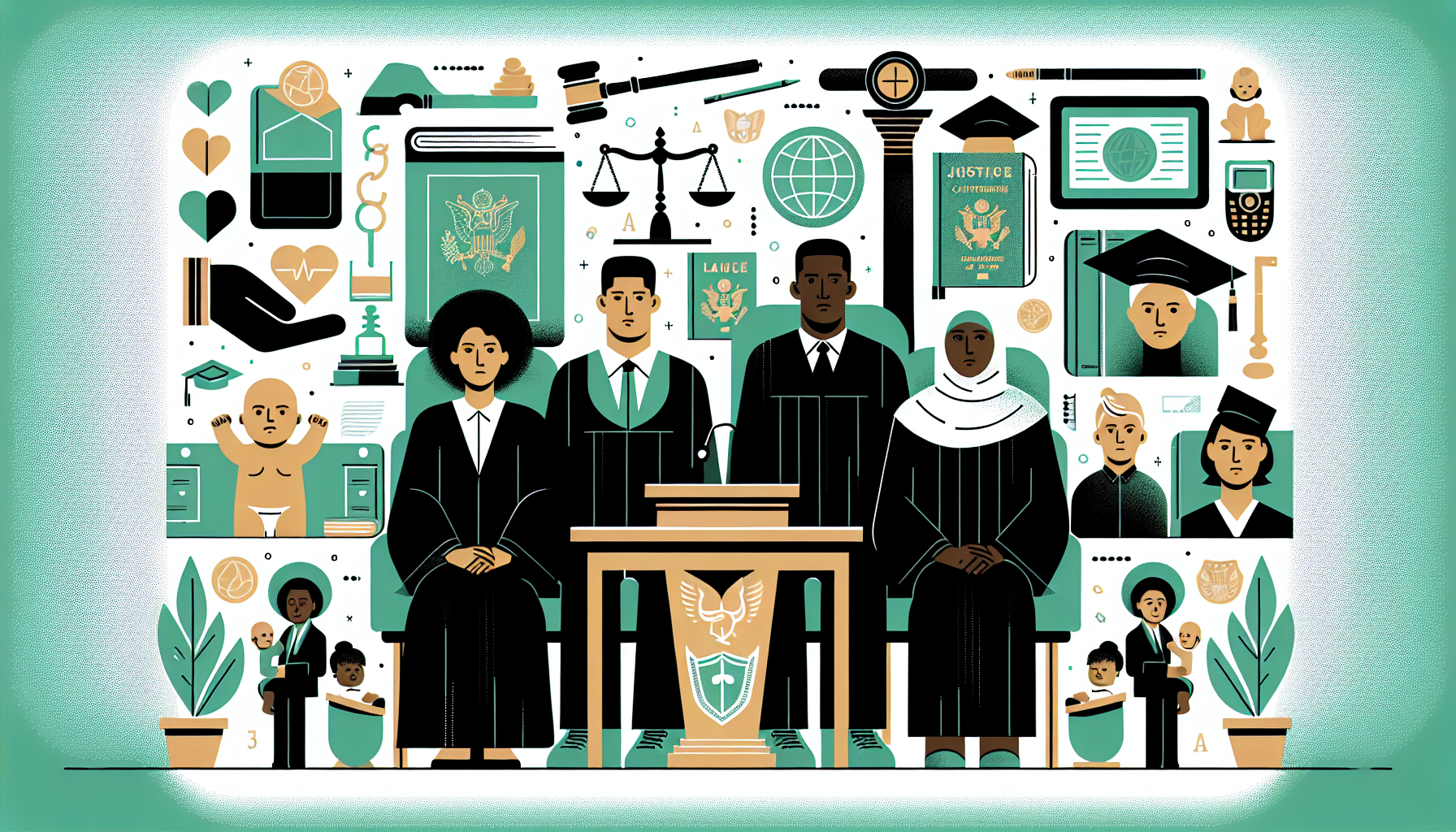Voice is AI-generated. Inconsistencies may occur.
A three-judge panel in the Boston-based appeals court expressed deep skepticism about arguments from President Donald Trump's Department of Justice as the administration seeks to overturn birthright citizenshi…
Why it matters
- The outcome of this case could redefine the legal status of millions of individuals born in the United States.
- A ruling against birthright citizenship could have far-reaching effects on immigration policy and national demographics.
- This legal battle highlights ongoing tensions between federal and state authorities regarding immigration practices.
In a significant legal battle unfolding in Boston, a panel of three judges from the First Circuit Court of Appeals has voiced considerable skepticism regarding the arguments presented by the Trump administration's Department of Justice. The case centers on the contentious issue of birthright citizenship, which grants citizenship to anyone born on U.S. soil, a principle rooted in the 14th Amendment of the Constitution.
The Department of Justice is currently working to overturn established legal precedents that uphold birthright citizenship, claiming that the policy encourages illegal immigration and undermines the rule of law. However, during the recent hearings, the judges expressed doubts about the validity of these claims and the legal rationale underpinning the administration's appeal.
Legal experts have noted that the case is particularly notable not only for its potential implications on immigration policy but also for its constitutional significance. If the court were to side with the Trump administration, it could lead to a substantial shift in how citizenship is defined in the United States, potentially affecting millions of individuals who were born in the country to non-citizen parents.
During the proceedings, the judges questioned the Department of Justice's interpretation of the 14th Amendment, which has historically been understood to guarantee citizenship to anyone born on American soil. They probed the administration's arguments, seeking clarity on how overturning birthright citizenship would be consistent with constitutional principles. The judges' inquiries suggested a reluctance to accept the government's position without compelling evidence to support such a drastic change.
The implications of this case extend beyond legal definitions; they touch on the broader societal and political landscape of the United States. Critics of the administration's push to eliminate birthright citizenship argue that such a move would not only violate constitutional rights but also exacerbate divisions within an already polarized nation. Advocates for immigrant rights contend that stripping birthright citizenship would disproportionately affect children of immigrants and could lead to a generation of individuals who are denied the fundamental rights afforded to others.
Furthermore, this legal challenge comes at a time when immigration remains a hot-button issue in the U.S. political arena. The ongoing debate around immigration policies has fueled tensions between various groups, including advocates for immigrant rights and those who support stricter immigration controls. The outcome of this case could serve as a litmus test for the future of immigration policy in the country and may influence upcoming electoral strategies as politicians navigate the complex landscape of public opinion on immigration.
As the panel deliberates, the stakes are high, not only for the Trump administration but for countless families who could be impacted by a potential change in citizenship laws. The judges have not yet indicated when they will issue their ruling, but the legal community is watching closely, as the decision could set a precedent for future cases and policies related to citizenship and immigration.
The discussions in the courtroom reflect a broader national conversation about identity, belonging, and the interpretation of the Constitution in a changing society. As the First Circuit Court of Appeals weighs the arguments, the outcome will likely resonate far beyond the courtroom, shaping the narrative around birthright citizenship and its role in defining what it means to be American in the 21st century.
In summary, the skepticism expressed by the judges in this pivotal case highlights the complexities surrounding the issue of birthright citizenship and its implications for millions of Americans. As the legal proceedings continue, many are left to ponder the future of citizenship in the United States and what it may mean for generations to come.











